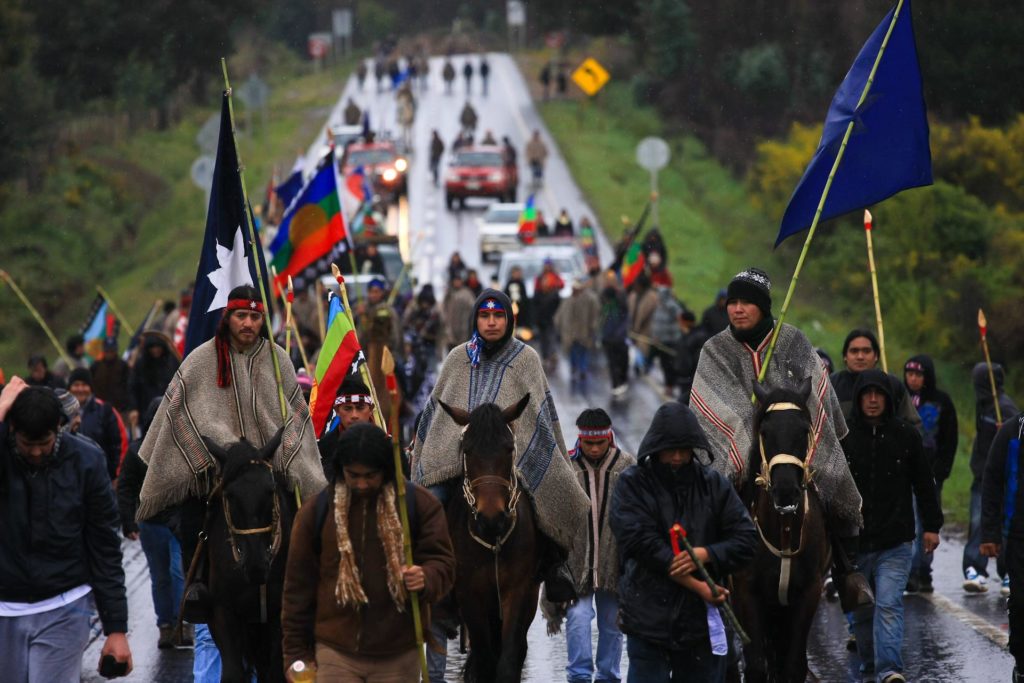RIO DE JANEIRO, BRAZIL – The Chilean Congress approved on Tuesday the request of the President of the country, Sebastián Piñera, to extend for 15 more days the militarization of an area in the south of the country where there has been a territorial conflict with Mapuche Indians for decades, which has worsened in recent times.
Both the Chamber of Deputies and the Senate approved the official letter sent by the President, which began to be in force for 15 days on October 12 by presidential decree and was extended for the same period and by the same means on October 26. Still, they now needed the approval of Congress to continue.
Read also: Check out our coverage on Chile
The measure, which response to the name of the constitutional State of emergency exception, will be in force until November 26 and enables the Armed Forces to collaborate with the Law Enforcement and Security Forces in police operations.

The macro zone of application covers the provinces of Bío-Bío and Arauco, in the Bío-Bío region, and the provinces of Malleco and Cautín, in La Araucanía, areas which have recently experienced a wave of violence with frequent attacks on agricultural machinery and land, roadblocks, hunger strikes by indigenous prisoners and shootings with fatalities.
The Government argues that it is necessary because of the increase in violence in that part of the country, linked to drug trafficking, terrorism, and organized crime, committed by armed groups.
Many of these episodes are part of the Mapuche conflict, which confronts the Chilean State and the country’s leading indigenous group, which claims the lands they have inhabited for centuries and which now belong, for the most part, to large agricultural and forestry companies.
In his speech, the President defended that it was necessary to extend the initial declaration due to the permanence of acts of violence in the area.
At the same time, he highlighted that while this measure has been in force, these have been decreasing, noting a reduction of almost half of the arson attacks and 88 % in the case of usurpations, in comparison to the previous weeks.
During the month the measure was in force, among other violent events, a Mapuche community member was killed in a security operation, and a school was set on fire.
Likewise, a video appeared through networks with around fifty armed hooded men, identified by signs as the indigenous organization Weichan Auka Mapu, threatening to fight “with weapons” the security forces if they do not leave the territory.
The Chamber of Deputies approved the extension Tuesday morning by 76 votes in favor, 59 against, and seven abstentions. The Senate validated the measure tonight by 21 votes in turn, 17 against, and two abstentions.
The parliamentarians against this measure argued that the zone has suffered from constant abandonment and that militarization does not solve the problems. The State has not faced the underlying issues, such as the Mapuche land claim.
Meanwhile, those who voted in favor defended militarization as the only tool to maintain tranquility in the face of the wear and tear and the saturation suffered by the Carabineros police force in dealing with the violence in the area.
The measure has been criticized from the beginning by indigenous organizations and the opposition, who maintain that it further increases tension in the bitter conflict. Several opposition deputies have already announced that they will vote against the extension.
The current situation has aroused various reactions, such as that of the Office for South America of the United Nations High Commissioner for Human Rights (OHCHR), which regretted the recent death of the Mapuche community member and expressed its concern for the militarization decreed by the Government.

